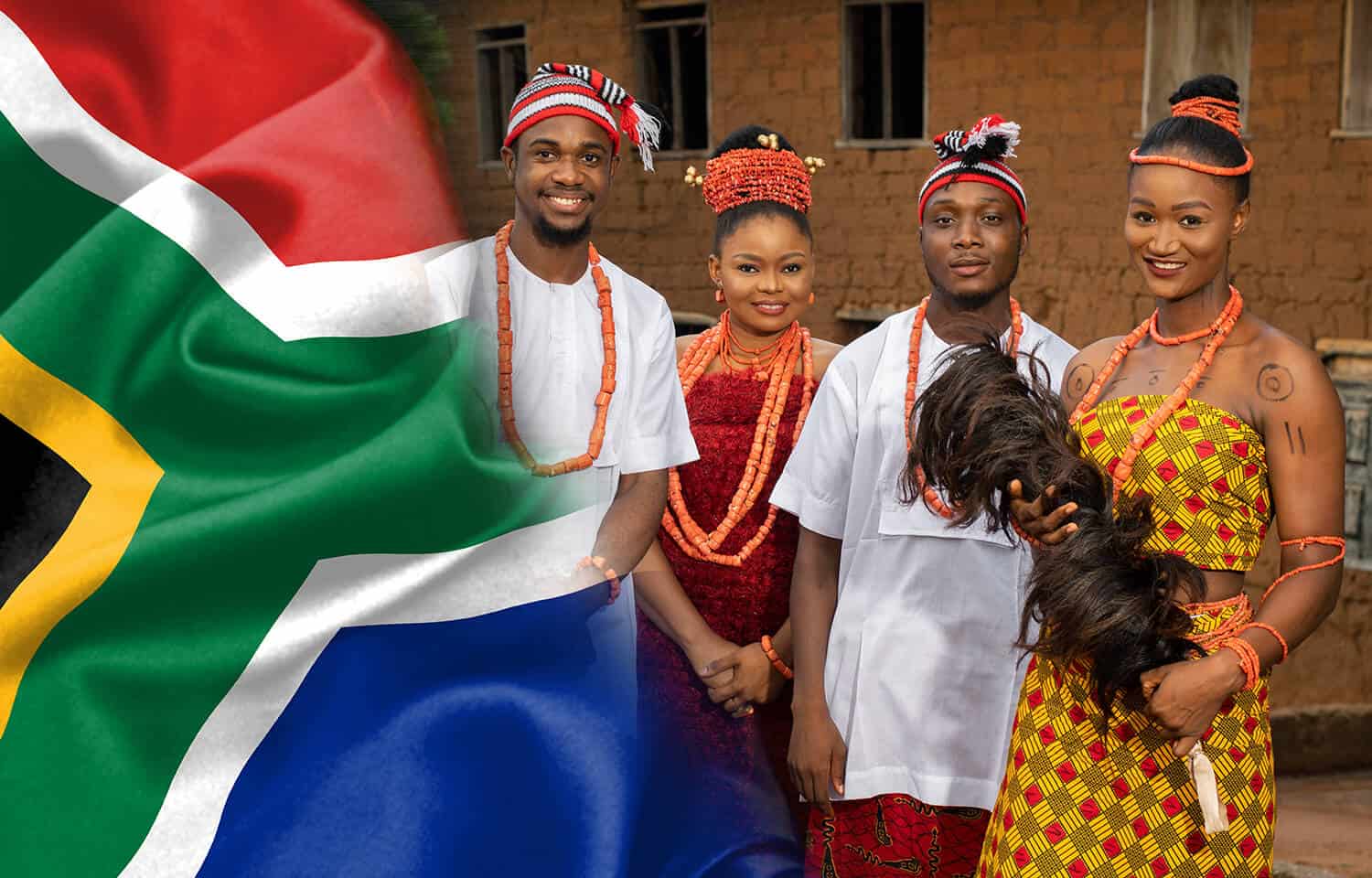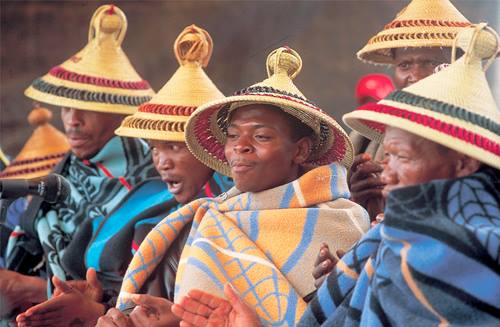The languages are spoken in South Africa

South Africa is located on the southern tip of the African continent, covering an area of 1,221,000 km², which makes it four times larger than Italy. It has a population of 55.9 million people.
With its natural beauty, wildlife, and sunshine, South Africa is a year-round destination for tourists from all over the world who come to enjoy the warm sunny days most of the year and see the rich diversity of animals, birds, and plant life.
But I will not be talking about nature here; I will go through the language diversity in South Africa and talk about the official language of the country and why it is considered a multilingual country.
How many languages are spoken in South Africa?
The diversified population of South Africa makes it a multilingual country, not just a bilingual country as it has 11 official languages. All these languages have had a profound effect on each other.
You will recognize that English is spoken everywhere you go. It is the language of commerce, banking, government, official documents, official forms, and road signs. But if you go deeper you can also hear other languages like Afrikaans, Xhosa, and Zulu.
Additional Reading: 20 Incredible Photos Of South Africa In case You Need Any More Reason To Visit
Overview of the Languages of South Africa
–English
English is widely spoken in the country but it is not the first language. It is the 6th most spoken language by South African people. Only 8% of the country’s population speak English, which is 4.7 million people.
The language was announced as an official language of South Africa in 1910. Still today English is the primary language of business, government, and commerce. Also it is a compulsory subject in all schools. South African English is not the same common English we know as it has a unique dialect and is strongly influenced by Afrikaans and other African languages.
–Zulu
This is the most common language in South Africa as it is spoken by 23% of the total population. Zulu was first introduced to the country in the 16th century by the Zulu people. The language is highly related to the Xhosa and is probably considered the most widely understood African language in South Africa and a regional language as over 70% of its speakers are located in KwaZulu-Natal, where Zulu is the language of 80.9% of the provincial population.
–Afrikaans
Afrikaans became one of South Africa’s official languages in 1925. It is the 3rd most common language in the country spoken by 13.5% of the population, which counts for more than 6 million native speakers. Afrikaans is influenced by many other languages like Malay, English, French, German, Portuguese, and some African languages.
The language is widely spoken by all ethnicities, however, Afrikaans has European roots. Today, the majority of Afrikaans speakers are not white.
–Ndebele
Also known as isiNdebele, this is a minority language spoken by only 1.6% of South Africa’s population. By numbers, it doesn’t exceed a million people. The majority of Ndebele speakers live in Mpumalanga and Gauteng. Ndebele is one of South African’s Nguni languages. Like the country’s other African languages, it is a tonal language, governed by the noun, which dominates the sentence.
–Xhosa
The second-largest language in South Africa is spoken by 17.6% of the population, this is also one of South African’s Nguni languages and is a tonal language. Xhosa shares much vocabulary with Zulu and is influenced by the Khoekhoe languages. The language is widely spoken by Eastern Cape and Western Cape people. One of the most famous Xhosa South Africans was the former President and Nobel Peace Prize laureate Nelson Mandela.
There are many dialects of the Xhosa language including Thembu, Bomvana, Mpondo, Rhathabe, Xesibe, Bhaca, Gealeka, Ndlambe, Cele, Hlubi, and Mfengu.
–Sotho sa Leboa
Also known as Sepedi or Northern Sotho, this is the 4th most common language in South Africa as it is spoken by 9% of the total population and is one of South Africa’s thee Sotho languages. The language is spoken mainly in Limpopo by 55% of the provincial population. It is also found in Gauteng.
Sesotho sa Leboa or Sepedi? The name of this language is a bit confusing as most language experts consider Sesotho sa Leboa to be the correct name, and Sepedi to be a dialect. This is already applied in the study of language policy in ix South African universities, where five used Sesotho sa Leboa and one used Sepedi.
–Sotho
This is one of South Africa’s three Sotho languages and it is spoken by about 8% of the country’s population. With Tswana and Zulu, Sotho was one of the first African languages to be rendered to written form. The language is also known as Sesotho or Southern Sotho. About 65% of the Free State population speak Sotho. It is also found in Gauteng where Sotho is spoken by 13% of the population.

There are many dialects of the Sotho language including Sesotho sa Leboa, Sesotho, and Setswana, which can be considered as a separate languages.
–Tswana
This is the language of the North West and its neighboring country of Botswana. Tswana is spoken by 8% of the total national population. It is related to the Sotho-Tswana subfamily, with Sesotho and Sesotho sa Leboa. It is the 5th common home language in South Africa. Tswana, also is known as Setswana, was the first Sotho language to have a written form in 1806 devised by Heinrich Lictenstein.
–Swati
This language is one of South Africa’s minority languages as it is spoken by only 2.7% of the country’s population. Swati is the language of the Swazi nation and is spoken mainly in eastern Mpumalanga, an area that borders the Kingdom of Swaziland. It is one of South Africa’s four Nguni languages and is influenced by the Zulu language.
–Venda
This is the language of the Venda people and one of South Africa’s minority languages spoken by just 2.4% of the country’s population. Venda shares many of its vocabularies and features with Shona and Sotho sa Leboa. Also, it requires many additional characters and signs that are not found in the standard keyboard.
–Tsonga
One of South Africa’s minority languages; also known as Xitsonga, is spoken by 4.5% of the country’s population mainly in the provinces of Limpopo, Gauteng, and, Mpumalanga where Tsonga people live. Tsonga is one of the Nguni-Tsonga language subfamilies that includes also Xhosa, Zulu, Swati, and Ndebele.
Additional Reading: 13 Facts That Will Change What You Think About South Africa
Wrap Up
As you can see, many languages are spoken in South Africa. The country has a multilingual population that is fluent in at least two.
Being an English speaker will allow you to enjoy your visit to South Africa or establish your business as the language is generally understood across the country. That is one of many reasons that South Africa is an attractive country for tourists from all over the world.
The languages you will hear frequently spoken in South Africa depend on where in the country you are. So if you were in Eastern Cape, Xhosa will be the main language you hear. If you are in Gauteng, Zulu will be most commonly spoken.
